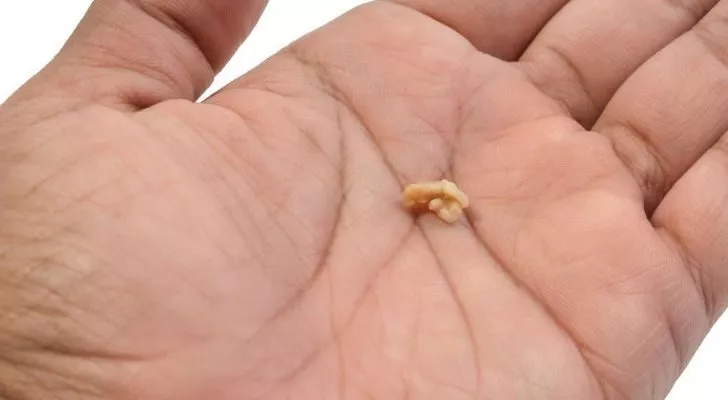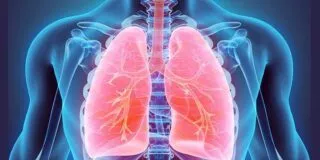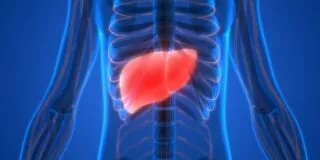Your tonsils are one of your body’s primary defense mechanisms against foreign invaders such as bacteria and viruses.
These organisms have to encounter your tonsils in your throat before getting into your body.
However, you have several other immune mechanisms to help protect your body.
So even without your tonsils, you can live a healthy life.
What do tonsils really do?

When people say tonsils, they generally talk about the masses of lymphoid tissue at the back of their throat, known as the palatine tonsils.
You have one palatine tonsil guarding your throat on either side.
Their strategic location allows them to act like goalkeepers. They can catch infectious pathogens trying to enter your body via your mouth.
Palatine tonsils defend against pathogens you inhale or swallow.
However, you’ve got more than one type of tonsil serving as gatekeepers.
Palatine tonsils form part of a ring of lymphoid structures called the Waldeyer’s ring in the pharynx.
Waldeyer’s ring comprises palatine tonsils, pharyngeal tonsils, tubal tonsils, and lingual tonsils.
Together, these structures fight off infection from microorganisms trying to enter your body through your nose and mouth.
How do tonsils work?

Tonsils act like a filter preventing microbes from getting into your system. It’s one of your body’s first defense mechanisms against incoming microbes.
Tonsils contain immune cells for defense. When pathogens enter your mouth or nose, your immune cells identify them first.
Next, these immune cells produce antibodies to kill and destroy pathogens.
Tonsils are part of a fluid system running through your body known as the lymphatic system.
Through the lymphatic system, your body clears away infections.
Can you live without your tonsils?
You can live without your tonsils. Tonsils aren’t in the same category as your lungs or heart, so they are unnecessary to keep you alive.
They’re essential parts of your body’s defense system, but you can live a healthy life without them.
Without your tonsils, your body’s other immune defenses swing into action to help you fight off infections.
After a tonsillectomy, there may be a higher risk of respiratory infections, ear inflammation, or sinusitis.
However, Just because you had your tonsils removed doesn’t mean you’re defenseless.
Your doctor can give you recommendations to strengthen your body’s immunity.
When do you need your tonsils removed?

Though not as common as they used to be, tonsillectomies are still one of the most common surgical procedures for kids.
Doctors perform about 530,000 tonsil removal procedures on kids and adolescents in the US each year.
Your tonsils help in fighting pathogens but can become problematic when infected.
Infected tonsils become inflamed, known as tonsillitis, and can cause problems. Viral infections are generally the cause of tonsillitis, but bacterial infections may be responsible too.
Sore throat is one of the tell-tale symptoms of tonsillitis. You may also experience difficulty swallowing, fever, or bad breath.
When you go to your doctor’s office and ask you to say “Ahh” while looking into your mouth, they usually check your tonsils.
Your doctor generally develops a conservative treatment plan for tonsillitis that suits the cause.
However, people with recurring tonsillitis, repeated ear infections, or super swollen tonsils might need to have them removed.
Severely swollen tonsils might cause people to have trouble sleeping as it obstructs their airway. Hence, a tonsillectomy may help relieve sleep apnea caused by inflamed tonsils.
Can ice cream help you recover from a tonsillectomy?

If you didn’t have your tonsils removed as a kid, you probably know at least one person who did.
The procedure is generally safe, and recipients may go home soon after.
Kids usually feel better a few days after a tonsillectomy.
During this recovery period, they get extra attention and get to eat as much ice cream and popsicles as they want to help them feel better.
Interestingly, studies show that soft cold foods such as ice cream and popsicles can help relieve post-tonsillectomy pain.
On the other hand, tonsillectomy recovery for adults may take a little longer, up to two weeks.
The pain worsens for the first few days but subsides as the days drag on.
Tonsils are not entirely useless because they help defend your body from pathogenic invaders.
However, thanks to other immune system components, you can still live a healthy life without them.
Also, you may want to stock up on ice cream for your post-tonsillectomy recovery.













